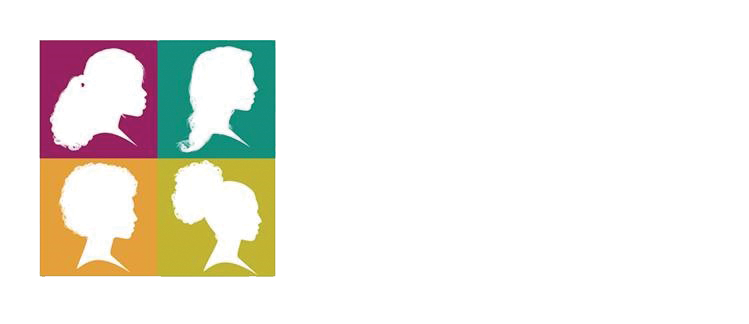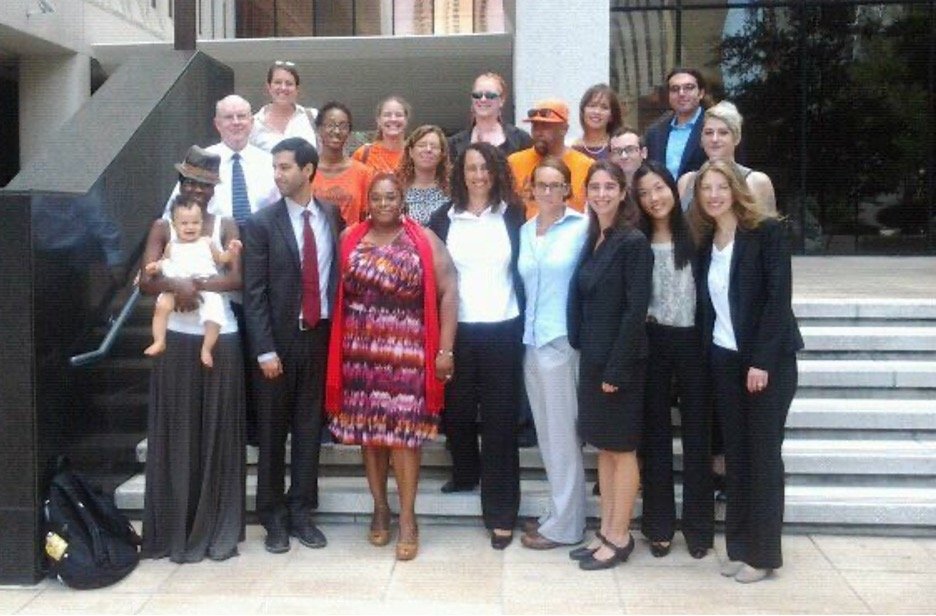Launch of New Orleans NO Justice Project
2009
Following Hurricane Katrina, we saw how the speed with which the racial capitalism playbook was moving enabled law enforcement to take renewed aim at our community members engaging in survival sex work. Through predatory policing and targeted charging of Black cisgender and transgender women under the CANS statute, they:
Further isolated sex workers, branding them with a scarlet letter in the form of sex offender registration, with the words SEX OFFENDER being stamped on their licenses, which severely limited their housing and job opportunities and shut them out of basic dignities like taking their children to school.
Blamed sex workers for their own victimization, using the cover of moral authority.
Criminalized sex workers for their attempts to provide for themselves and their families
Destabilized communities by removing mothers, caretakers, and friends from their networks of care, and limiting their access to vital social services.
Erased sex workers by forcing them out of the streets where they work, restricting where they can live and move, and disappearing them behind bars.
Took over streets that used to be safe spaces for sex workers, rapidly gentrifying them with new restaurants, businesses, and development projects.
Members of the NO Justice legal team gathered with WWAV staff, board members, and accomplices on the courthouse steps for a press conference after the Doe v. Jindal case was filed in the Eastern District of Louisiana, February 15, 2011, on behalf of nine plaintiffs who had been forced to register as sex offenders as a result of a Crime Against Nature by Solicitation conviction. Photo courtesy of WWAV Archives
This mock-up of a Louisiana driver’s license with the words “SEX OFFENDER” below the silhouette of a Black femme figure was created by the Center for Constitutional Rights. As the NO Justice Project progressed, WWAV and the NO Justice legal team used this graphic, rather than renderings of people’s actual licenses, to protect confidentiality. Graphic courtesy of Center for Constitutional Rights
“Then, one by one, people started showing up at WWAV with photo IDs that read “SEX OFFENDER” in bold red letters. What Deon, Catherine, and Danita figured out was that the police were booking people arrested for street-based sex work under the felony-level “crimes against nature by solicitation” (CANS) statute, instead of (or sometimes in addition to) the state’s misdemeanor prostitution charge. That policing was targeted. Ninety-seven percent of people with CANS convictions were women; eighty percent were Black. A single CANS conviction mandated registration as a sex offender for fifteen years. Upon a third conviction, a person would be classified as an aggravated sex offender, and mandated to register for the rest of their life. The statute, thus, when capacitated through decades of punitive criminalization policies, was in effect a strategy of permanent banishment.”
WWAV put our counter playbook into action by:
Finding our accomplices, starting with WWAV’s “ride-or-dies” in Black harm reduction and HIV prevention, and then newer, local faces in the public defender’s office and media, and then ultimately a team of social movement lawyers, including Andrea Ritchie, Alexis Agathocleous, Bill Quigley, Davida Finger, and Sunita Patel, who brought the lawsuit challenging CANS.
Refusing to accept that nothing could be done and our community members would have to live the rest of their lives with the scarlet letter “SEX OFFENDER” designation on their licenses.
Speaking out. The seriousness of CANS became clear after hearing the stories of dozens of our community members as they tried to navigate life on the sex offender list, and we stayed true to these stories in every outreach session we did.
When recounting the everyday toll of being on the sex offender registry, one woman snapped “There is NO Justice in Louisiana!” Her words became the organizing call moving forward, and WWAV deliberately used the all-caps “NO” as both a shout and shorthand for New Orleans —Fire Dreams: Making Black Feminist Liberation in the South, page 15
In order to create the NO Justice Project and mount a challenge of the CANS statute in the courts and legislature, we had to dream of a world otherwise and help our community members, the sex workers we were fighting with, believe that otherwise world was possible. Changing the CANS statute and getting our community members removed from the sex offender registry was just one step towards the world otherwise where sex workers live free from the threat of criminalization, isolation, and are granted the same bodily autonomy we all strive for.





